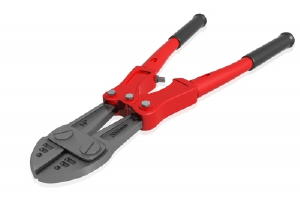-
- 27
Jul - (0)
Been Robbed Lately?
I was robbed a number of years ago, and it didn’t feel good.
 It was like that old game show where contestants got a free shopping spree, leaving my possessions of less worth strewn about the house, and the ones worth anything were gone within the five minute shopping spree. I felt violated…and poorer. The new healthcare world could lead to lower crime, and I’m all for that. I’d rather you didn’t have to experience that sort of violation.
It was like that old game show where contestants got a free shopping spree, leaving my possessions of less worth strewn about the house, and the ones worth anything were gone within the five minute shopping spree. I felt violated…and poorer. The new healthcare world could lead to lower crime, and I’m all for that. I’d rather you didn’t have to experience that sort of violation.Most cops who pay attention to this sort of agree that methadone clinics in the neighborhood lower crime. If people with mental illness issues are treated, there is less panhandling, self-medicating with drugs and alcohol (which leads to crime), and homelessness. If a cocaine addict in addiction treatment pays the rent instead of heading to the dealer on payday, crime has instantly dropped.
Recent healthcare legislation has made treatment is more easily available to those who need it. In a recent Forbes article, Rachel E. Barkow and David B. Edwards say that of the 20 million American substance abusers, a little over 10% are getting treatment. By improving access to treatment, assuring treatment providers are paid on par with physical health counterparts, and policing treatment quality, the country is on track to improve that ratio.
A number of years ago, I read somewhere that 85% of prisoners in the California prison system were residents either because their crime was alcohol/drug related or they were high while doing the crime. Other than offering proof that sober criminals are better criminals, this anecdotal information asserts that crime and alcohol/drug abuse are related. Making it easier to get treatment can lower crime. Currently, over 25% of the 6.5 million people on prole, probation or supervised release are using illicit drugs according to Forbes. That in itself is a crime, and sets up the neighborhood for burglaries and such.
This makes me a bit nervous. I also think that number may be a bit low, but that’s another story.
We’ve known alcohol/drug abuse and crime are related for centuries, and we’ve started doing something about it. It’s not just a few cops on the street who notice the drop in crime when treatment is available. It’s people like you and me. Reports nationwide show drops in crime with increased access to treatment. The National Treatment Improvement Evaluation Study (a big one) showed a 64% drop in arrests and a 78% drop in drug sales. Holy cow! That’s cleaning up the neighborhood!
Since the proof is so overwhelming, you’d think opposition to supporting treatment in the neighborhood would disappear. Not so. I recently wrote about the insurance empire fighting Mental Health Parity, wherein these treatment centers (which are helping to lower crime) would be paid on-par with physical health providers. It seems that no matter how good an outocme may be, there will be those whose income is affected negatively, and they will fight for the money.
The fact is, I haven’t been robbed lately. There are a number of addictions and mental health treatment centers in the neighborhood. They are in jeopardy, however they’re solving their problems, in part due to improvements to the healthcare system. A drop in crime is a good thing.
- 27

Leave a Reply